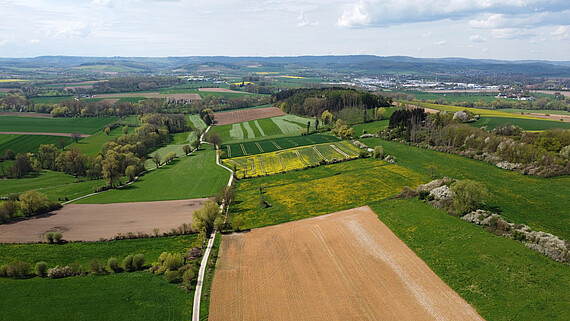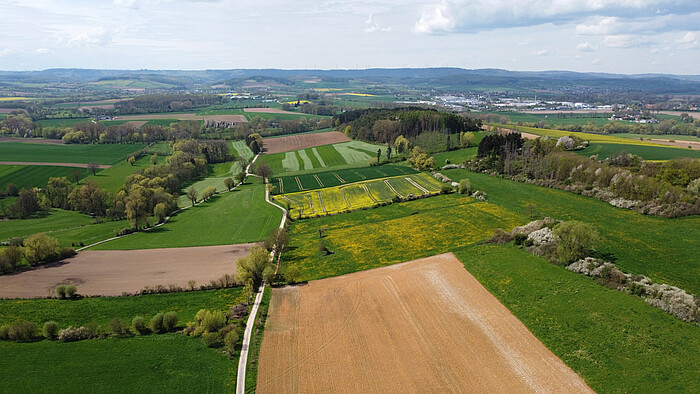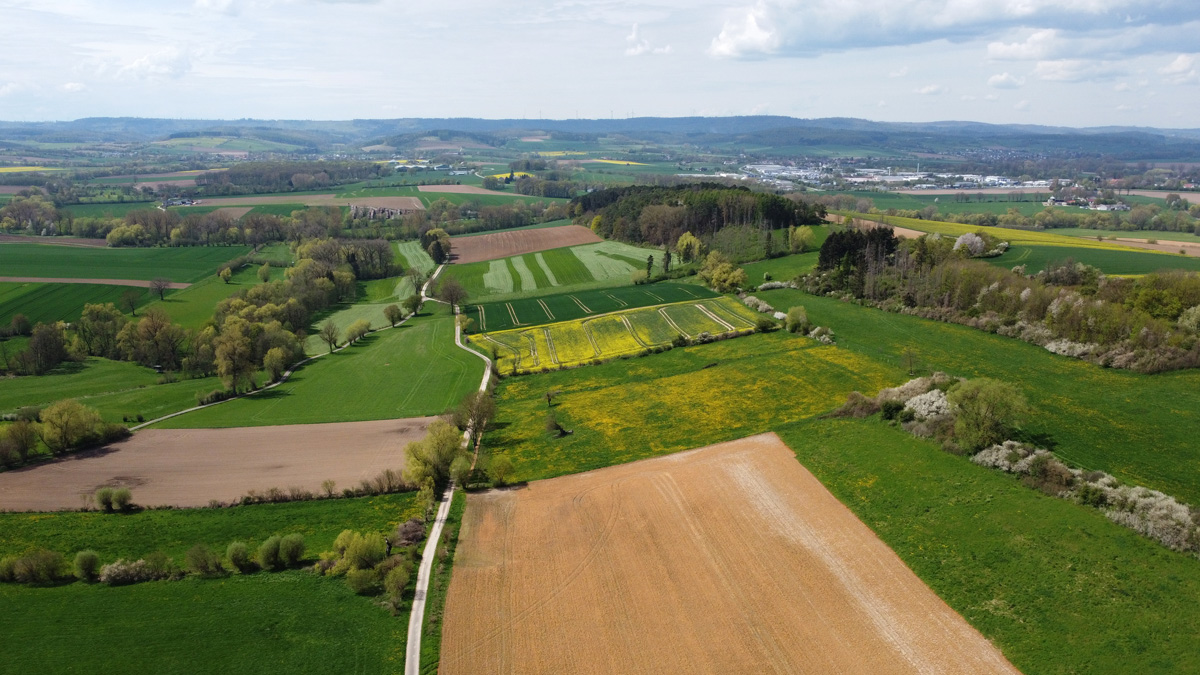Research Physical Geography and Landscape Ecology Section



To identify, comprehensively understand and systematically analyse the structures and processes of landscapes – these are some of the main issues of physical-geographical and landscape-ecological research and teaching.
The work of a geographer can range from data collection in the field and laboratory processing to data analysis with geographical information systems (GIS) and simulation models. The careful and meticulous interpretation of geographical data helps us to understand different environments and to utilize these in a sustainable manner.
Research approach and methods
Our research deals with diverse application-related and spatio-temporal issues in national and international research projects and cooperations:
- Landscape structures and landscape processes
- Ecosystem conditions and services
- Urban ecosystem services, health and environmental justice in global change
- Nature-based solutions for climate change adaptation and mitigation
- Land use and land cover change in global change
Main methodological focus
-
Digital measurement and remote sensing methods
Digital measurement and remote sensing methods are the basis for the acquisition of landscape structures and processes and for the creation of digital elevation and surface models (DEM/DSM). In addition to the possibilities of photogrammetric analyses of existing satellite and aerial image data, the Institute has its own unmanned aerial systems (UAS/flight drone systems), some with near-infrared cameras for vegetation detection, and also a terrestrial laser scanner (TLS) for exact data acquisition in different research and study projects. The data are collected with high precision using the institute's global navigation satellite system devices (GNSS) and then further processed in geographic information systems (GIS) or simulation models. The Institute thus offers the complete workflow, from high-precision data acquisition in the field to the creation of exact digital landscape models in GIS.
-
GIS and spatial modelling
Spatial data are the basis of physical-geographical research. Geographic information systems (GIS) offer the possibility to digitally collect, manage and analyse spatial data and to present them as two-dimensional maps or three-dimensional terrain models. Due to the enormous importance that GIS have in modern digital physical geography, GIS and Python scripting are a focus in the training and research at our institute. GIS data also form the basis for many other applications, for example in soil erosion research and spatial modeling of various ecosystem services with the model systems Erosion3D ©, ESTIMAP © and InVEST ©. The group also applies methods of artificial intelligence such as machine learning, especially for the analysis of big data or for predicting ecological phenomena and processes. Research data of diverse structure are increasingly integrated and assessed using linked-data approaches.
-
Geostatistics and spatial data analysis
In addition to using Geographic Information Systems (GIS), we employ (geo)statistical analysis methods that utilise spatial references for data evaluation. We focus on open source software such as R or Python scripting to ensure transparency and reproducibility. The methods range from descriptive to analytical to multivariate statistics. Especially for the analysis of repetitive or large data sets ("Big Data"), scripting- and machine learning-based computational algorithms are becoming the preferred method instead of map-based GIS user interfaces. These scripting-based (geo)statistical analysis methods are gaining more relevance in physical geography.
Since these methodological skills are also essential for study projects and graduate theses as well as additional qualification for the job market, our teaching courses are constantly being updated and modified.








